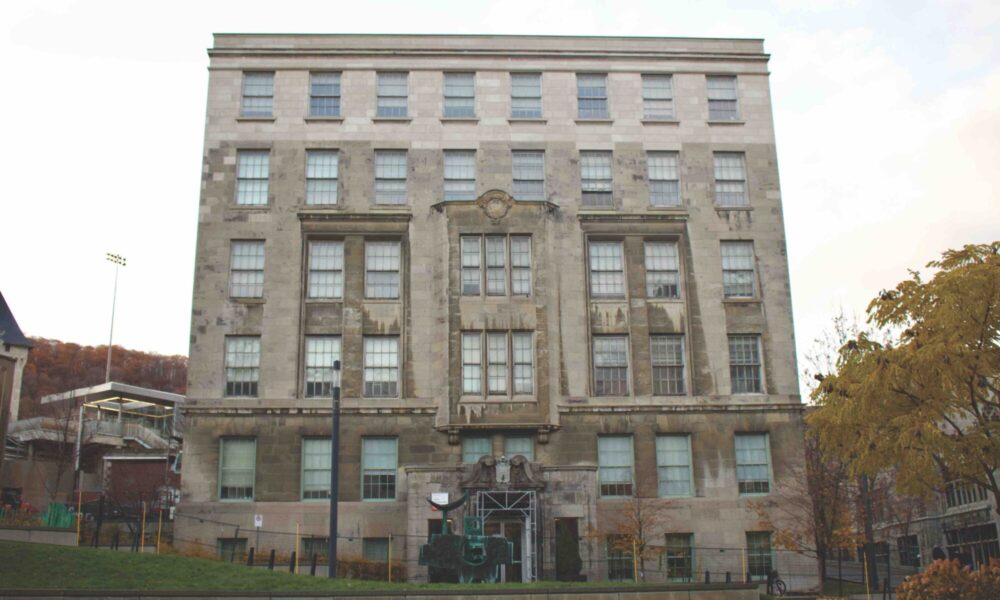McGill’s governance structures can seem opaque and difficult to navigate. The Tribune broke down the organizations that represent the student body and how they are governed, as well as how the university’s governance apparatuses work.
The Students’ Society of McGill University (SSMU)
SSMU is the students’ union that represents all undergraduates at McGill. The organization is funded by student fees and is responsible for advocating for undergraduate students, overseeing undergraduate student clubs, running Gerts Bar and Café, and providing services, resources, and events for its constituency. Seven executives—a President, a Vice-President (VP) Student Life, a VP of Internal Affairs, a VP External Affairs, a VP Finance, a VP Operations and Sustainability, and a VP University Affairs—are elected to help run the society each academic year. Full- and part-time staff report to the SSMU executives and help carry out their offices’ work. Board of Directors meetings take place every second week and bring together four of the elected executives and eight appointed students who are responsible for administering the business affairs of the organization and supervising its management. Legislative Council meetings, which are also held bi-weekly, are made up of thirty councillors who make political decisions for the Society. General Assemblies (GAs) are held at least once a semester; if the quorum of 350 students is met, any member of SSMU is allowed to vote on the motions put forward.
The Post-Graduate Students’ Society (PGSS)
PGSS is the students’ union that represents all post-graduate students and post-doctoral fellows at McGill. Like SSMU, PGSS is funded by student fees and responsible for advocating for the needs of its constituency, providing resources and support, hosting events, and operating Thomson House—a restaurant and bar exclusively for PGSS members and their guests. There are six elected executives: A Secretary-General, an External Affairs Officer, a Financial Affairs Officer, an Internal Affairs Officer, a Member Services Officer, and a University Affairs Officer. Monthly PGSS council meetings are held to help determine the long-term vision of the society, pass new policies, approve committee appointments, and serve as an accountability mechanism for the executive team. Departments are responsible for appointing individuals to represent them on the council. The Society also holds at least one General Meeting a semester, during which all members of PGSS are allowed to vote on motions put forward, provided the quorum of one per cent of the membership is met.
The McGill Association of Continuing Education Students (MACES)
MACES represents all Continuing Education Students, advocating on their behalf, providing resources such as academic support, and assisting members with networking. Like SSMU and PGSS, the association runs on student fees. A six-member executive team governs the organization, composed of a President, a VP Financial Affairs, a VP Social, a VP Communications, a VP Academic Affairs, and a Governor. The Board of Directors is elected by the constituency for a two-year term and meets weekly—unless the agenda indicates there is not enough to discuss. MACES holds a GA at least once a semester, and the Association’s By-Laws state that GAs have comparable legislative power to the Board of Directors.
The Macdonald Campus Students’ Society (MCSS)
Macdonald Campus students are represented by MCSS, which oversees clubs, seeks to promote students’ welfare and interests through advocacy and support, and runs The Ceilidh—a bar and restaurant on Macdonald Campus. Like the other students’ societies, it also runs on constituent fees. The MCSS executive council is comprised of a President, VP Finance, VP Internal, VP University Affairs, VP Business Operations, VP Communications, and VP Equity and Sustainability. The MCSS Council, which is comprised of 18 core members, meets bi-weekly to review and pass policies. Open Student Society Meetings meet quorum when ten per cent of the Society’s membership vote on the presented items and are held at least once a semester.

The McGill Board of Governors (BoG)
The BoG is the highest governing body at McGill and has final say over the academic, business, and financial affairs of the University. The BoG is comprised of the Chancellor, the Principal and Vice-Chancellor, twelve members-at-large, three representatives of the McGill Alumni Association, two representatives of the Senate, two representatives of the academic staff, two representatives of the administrative and support staff, one representative of SSMU, and one representative of PGSS. Both MACES and MCSS have non-voting observers appointed to the BoG. The Board meets two to three times a semester for three hours.
The McGill Senate
The Senate is the highest democratic governing body of the University. Unlike the BoG, it has a focus on academics. Created to serve as a link between the McGill community and the BoG, it is comprised of 111 voting members and meets once a month to discuss questions and motions raised by members. Representatives from SSMU, PGSS, MACES, and MCSS serve on the Senate and advocate for students’ needs. Other members of the Senate include the Chancellor, the Chair of the Board of Governors, the Principal and Vice-Chancellor, the Deans of Faculties, professors and instructors from across the university, and members of the administrative and support staff, among others.







